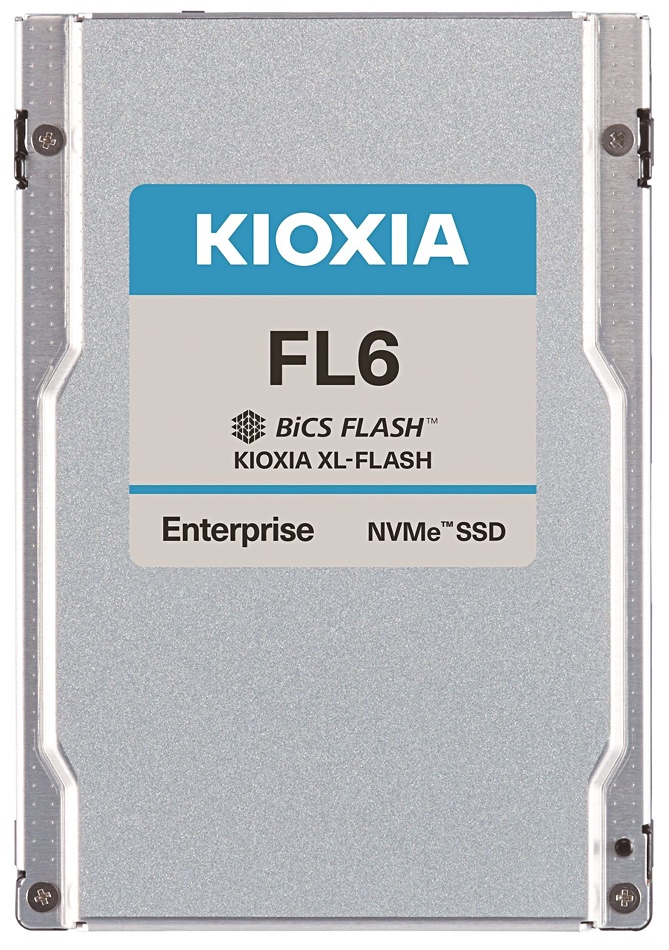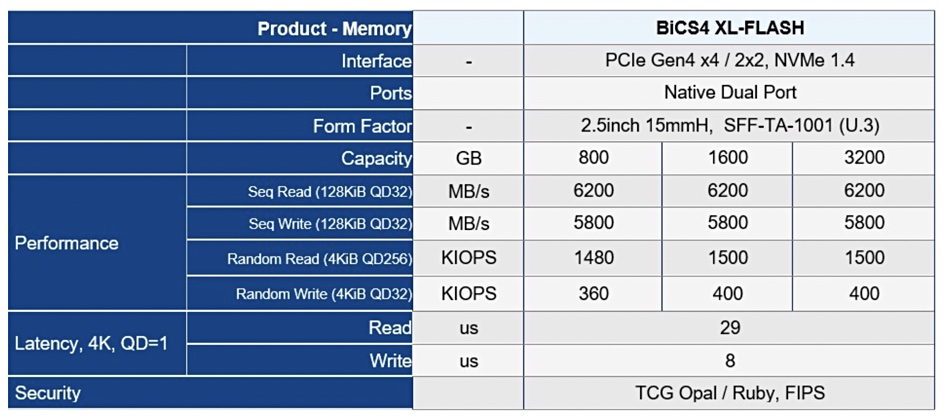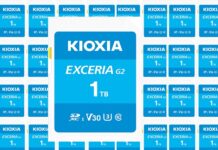Kioxia has announced it’s sample shipping an FL6 storage-class memory SSD built with its XL-Flash NAND technology.
Update: Kioxia supplied FL6 performance data. 15 Sep 2021.

This news has been a long time coming as Kioxia first announced its XL-Flash technology back in 2019. It used BiCS 4 flash with 96 layers, formatted as SLC (Single Level Cell; 1 bit/cell) and with a latency variously described as less than 25 and 20µs and down to 5µs.
Kioxia’s announcement contains no executive’s quote and says the FL6 bridges “the gap between DRAM and TLC-based drives, making them well-suited to latency-sensitive use cases such as caching layer, tiering and write logging.”
The FL6 has a PCIe Gen-4 interface and supports NVMe v1.4. We’re told it performs well on low queue depth workloads but its true strengths are revealed as workloads become more demanding and mixed. There it delivers a reliable quality of service.
Capacities are 800GB, 1.6TB or 3.2TB and the endurance is 60 drive writes per day — much better than TLC flash.
Kioxia provided a performance table;

For comparison Intel’s P5800X Optane SSD also supports PCIe Gen-4 and has a 100 DWPD rating. Its latency is under 6µs and its random read/write performance is 1.5 million IOPS for both reads and writes. The sequential performance is up to 7.2GB/sec reading and 6.2GB/sec writing, all of which makes it faster than the FL6 generally and much faster on random and sequential writes; 3.75x and 15.5x respectively.
A P5801X product goes faster still: 1.55 million random read IOPS, 1.6 million random write IOPS, up to 7.4GB/sec for sequential reads and writes.
You might cavil at Kioxia’s description of the drive as storage-class memory. Memory is accessed using load and store instructions, not through storage IO. Think of this in that case as a muscled-up dragster of an SSD.
The FL6 has dual ports for high-availability, a 2.5 million-hour MTBF rating and has SED and FIPOA 140-2 security options. We have not been told the warranty period but expect five years.








